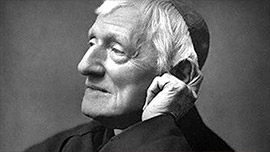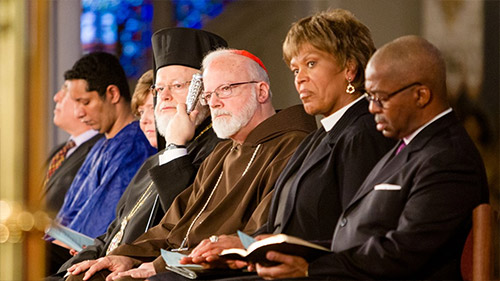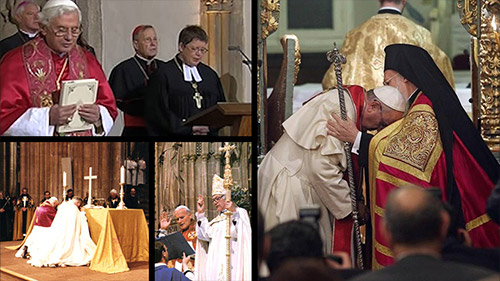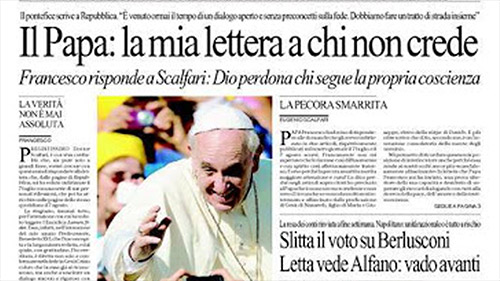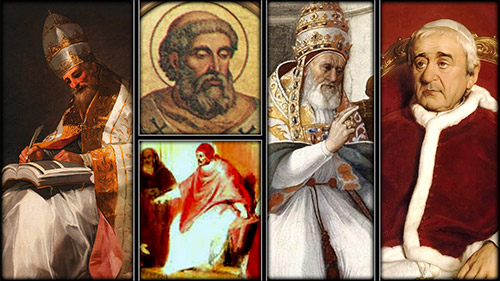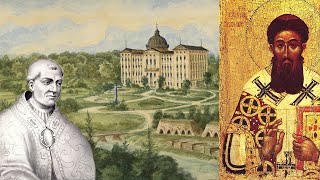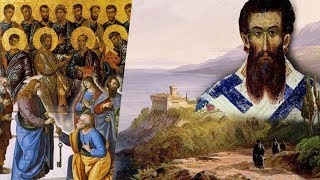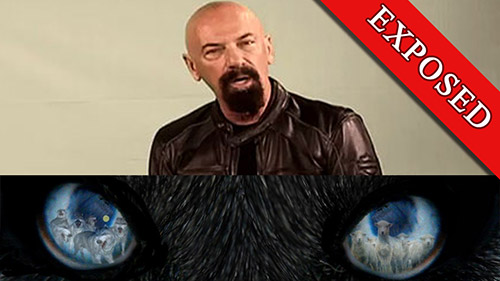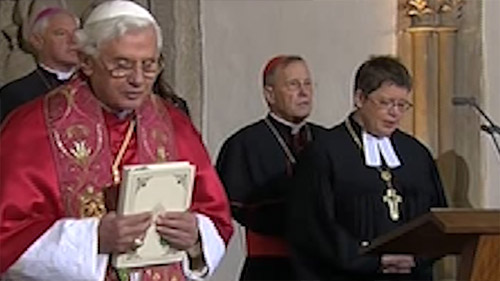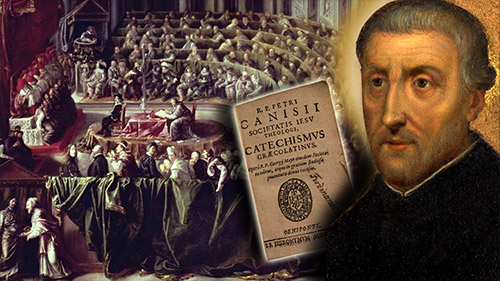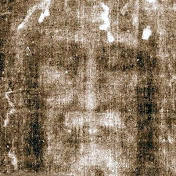 | vaticancatholic.com - English Channel |
Download Audio — File Size: 18.2 MB — Duration: 19:00 Faith & Doctrine | Heresies From The Vatican II Antipopes | History | The True Popes Of The Catholic Church | True Christianity Is Not Protestantism | Vatican II Church Is Not Catholic 0:00 Introduction Bro. Peter Dimond On April 25, 2024, anti-Catholic Protestant James White and Vatican II Sect member Jimmy Akin debated justification and salvation. Obviously, since he’s a Protestant, James White is heretical on justification and salvation. We refute his false position in our videos called Protestantism’s Big Justification Lie; What Millions Get Wrong About Ephesians, and Born Again Refutes Faith Alone. This video will not analyze all the arguments made in the debate. Rather, it’s intended to correct a few of the serious misrepresentations of Catholic teaching made by Jimmy Akin during the discussion. Akin claims to be a Catholic, but sadly he’s not. Some of the things Jimmy Akin said in the debate were quite scandalous and contrary to Catholic teaching. One of Akin’s main arguments in the debate was to attempt to convince Protestants that Catholicism is not a false gospel because it’s supposedly so close to Protestantism. Akin also described the teaching of Martin Luther and various Protestant sects as the true Gospel.
Instead of trying to convince Protestants that Catholicism is not false because it’s supposedly so similar to Protestantism, Akin should have told the non-Catholics, in charity, that they don’t have the true Gospel, and that they won’t be saved unless they embrace the Catholic faith, which alone is true Christianity. But Akin doesn’t believe that. He sadly doesn’t have the Catholic faith. Rather, he accepts the false ecumenical theology of the Vatican II religion (which holds that Protestants are in the Church of Christ, can be saved, etc.). Thus, one of Jimmy Akin’s goals was to ensure the Protestant audience that they are not condemned for believing in Protestantism. It was a diabolical and fruitless endeavor. In his opening statement Akin argued that Protestants are not anathematized for denying the teaching of ecumenical councils. His statements on this matter include a number of serious errors.
Akin argues that Protestants are not anathematized or condemned for rejecting Catholic dogmatic canons because, according to him, the term anathema only refers to a ceremonial excommunication pronounced by a bishop. That’s wrong. He also claims that anathemas don’t take effect automatically. That is also wrong. Akin also claims that anathemas are no longer in effect, which is also wrong. Akin bases his argument almost totally on a citation from the 1917 Code of Canon Law, which doesn’t prove his claim. He cites canon 2257 of the 1917 Code, which says that excommunication is also called anathema especially when it is inflicted by a bishop with all the ceremonies. But it doesn’t say that anathema only refers to such formal ceremonies. That’s because anathema also refers to an automatic penalty or condemnation that falls upon someone who denies a dogmatic teaching of the Church. In fact, that’s how the term is most frequently used in magisterial documents. Indeed, there are multiple passages in the Council of Trent itself that destroy Akin’s false claims about the meaning of anathema. For example, this is from Sess. 25 of the Council of Trent on Indulgences.
As we can see, those who deny the Church’s teaching on indulgences are condemned with an anathema. Here the term anathema describes an automatic condemnation, not something reserved to the bishop. That refutes Akin’s claim. In Sess. 24, the Council uses the term anathema to say the following about the validity of certain marriages:
Again, here the Council of Trent used the term anathema to refer to an automatic condemnation that applied to those who denied its teaching, not to a solemn ceremony reserved to the bishop. Another passage is found in Sess. 24 of Trent. This statement is particularly interesting because it comes just before the dogmatic canons on the Sacrament of Matrimony.
One could hardly ask for a better refutation of Akin’s false claim about the meaning of anathema. Trent declares that its canons on marriage (which end with “let him be anathema”) decree “anathemas against the heretics themselves” who deny those teachings. Hence, the anathemas are automatic penalties that fall upon all heretics who contradict the Church’s dogmatic statements. Thus, when the Church adds “let him be anathema” to a dogmatic canon, it indeed means that people who choose to embrace the condemned position and deny the Church’s teaching automatically incur an anathema. In this passage Trent even uses the intensive pronoun “ipsos”, when it says “in ipsos haereticos”, which means “against the heretics themselves”. Hence, the anathema is a penalty or condemnation that automatically strikes Protestants and others who deny the Church’s teaching. With these facts Akin’s claim has been thoroughly refuted from the words of Trent itself. Akin also claims that anathemas don’t apply to non-Catholics. That’s also wrong, as we’ve shown. The Church teaches that all the baptized, including non-Catholics, are subject to the Church’s power and bound to the observance of Christian law by virtue of the baptismal character. See, for example, the Council of Trent’s canons on Baptism. Therefore, the anathemas that the Church promulgates against all who deny her teaching apply to all the baptized Protestants and other baptized individuals who dissent. Indeed, in the Bull Cantate Domino, the Council of Florence uses the verb anathematize to state:
Once again, we see that anathemas are automatically inflicted upon all who deny her teaching, completely refuting Akin’s false claim. Akin also claims that anathemas don’t apply today. That’s false. While anathemas are essentially dismissed by the counterfeit Vatican II religion and its antipopes, they still exist in God’s sight and in the teaching of the Catholic Church. Anathemas are attached to a rejection of the Church’s dogmatic teaching. As just one example of a 20th century reference, in his 1930 encyclical Casti Connubii, Pope Pius XI states:
Pius XI cites Trent to affirm that anathemas apply automatically to those who embrace that condemned heresy. Akin also claims that anathemas do not mean damned by God. But that is also false. Being under an anathema does not mean that a person cannot possibly repent and convert, but such a person who is anathematized is condemned by God and will be ultimately damned unless he or she converts. Indeed, here’s an interesting quote from Pope Stephen III who correctly teaches that anathema means that a person will be damned by God (unless he or she repents).
Thus, we’ve proven that Jimmy Akin was wrong on almost everything he said in regard to the meaning of anathema. The truth is that Akin himself is under anathema for having denied Catholic teaching in various ways. It’s also ironic that, in this debate, Akin stressed that (following the advice of St. Paul) he didn’t want to quarrel over words.
Akin claimed that he didn’t want to quarrel over words, but instead focus on substance. But what he actually did was make an argument about the meaning of a word (anathema) – getting the meaning wrong in the process – with the result that he violated the substance of Catholic teaching when he told the Protestants and other non-Catholics that they aren’t condemned for denying Catholic teaching. For what was the substance of Akin’s point in focusing on the meaning of anathema? His point was, of course, to tell the non-Catholics: don’t worry, you are not condemned; you are fine where you are. That false message substantively violates Catholic teaching. Akin also didn’t quote this passage from the Council of Trent, which states:
The passage condemns Akin’s false message. Akin didn’t tell them what the Council of Trent does, namely, that anyone who dissents from Trent’s decree cannot be justified. Akin didn’t deliver that message because he rejects it. Instead, he accepts the heresies of Vatican II, according to which Protestants and others who reject Catholic dogmas are in the Church of Christ, can be saved, can be saints, etc. Besides denying Catholic teaching, Akin failed in his obligation of charity toward the Protestants, which is to tell them the truth they need to know to come out of their heresies and be saved. In this debate Akin also promoted the appalling and heretical Joint Declaration With The Lutherans On Justification, which teaches the heresy of faith alone and that other Protestant heresies are not condemned by Trent. See our article on that heretical agreement. Akin’s statements in this debate are a prime example of how Vatican II so-called Catholicism is counterfeit, fake Catholicism. Although what Akin said is directly contrary to true Catholic teaching, it is consistent with heretical Vatican II teaching. In fact, here’s a clip in which Akin teaches that Protestants and other non-Catholics may lawfully receive Holy Communion.
That’s blatantly heretical and condemned by the Catholic Church. Here are other heretics from ‘Catholic Answers’ teaching the heretical position that all the baptized are in the Church of Christ (which is directly contrary to Catholic dogma).
Akin completely denies the Church’s teaching that there is no salvation outside the Church. He even teaches that Protestants who reject the papacy can be saved, which is a denial of the Church’s teaching that those who reject the Papacy, or are divided from Catholics in government, cannot be in the church of Christ or be saved.
We’ve shown that Akin was completely wrong on the meaning of anathema, which resulted in his rejection of the substance of Catholic teaching on the obligation to adhere to its dogmatic canons. We’ve also shown that Akin, the senior apologist for ‘Catholic Answers’, among his other heresies, promotes faith alone, that Protestants are not heretics, and that Martin Luther and many Protestant sects had (and have) the true Gospel. Akin’s statements demonstrate once again that the Vatican II religion is not Catholic, and that the defenders of the Vatican II Sect are not Catholic. To be a true Christian and be saved, one must be a traditional Catholic, as our material explains. Copyright © 2024 Most Holy Family Monastery |
Anathema – Jimmy Akin Gets It Wrong In Debate With James White
May 31, 2024
SHOW MORE


